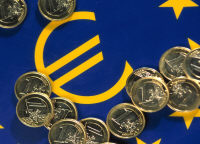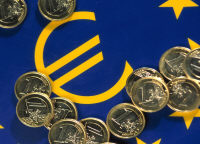 On June 8th 2010 a joint conference between the German Institute for International and Security Affairs (SWP) & the Hellenic Foundation for European and Foreign Policy (ELIAMEP) was held in Brussels, Belgium. The meeting focused on: “Our Money, My Europe: The Limits of Solidarity. The Internal and external impact of the euro zone crisis”.
On June 8th 2010 a joint conference between the German Institute for International and Security Affairs (SWP) & the Hellenic Foundation for European and Foreign Policy (ELIAMEP) was held in Brussels, Belgium. The meeting focused on: “Our Money, My Europe: The Limits of Solidarity. The Internal and external impact of the euro zone crisis”.
The MEP Jorgo Chatzimarkakis from the Free Democrats in Germany hosted the proceedings in the European Parliament.
Alongside SWP researchers Daniela Schwarzer and Dušan Reljić, speakers included:
– Jens Bastian, Senior Research Fellow, ELIAMEP
– Jorgo Chatzimarkakis, MEP
– Janis Emmanouilidis, Senior Policy Analyst, EPC
– Giorgos Glynos, Stavros Costopoulos Fellow, ELIAMEP
– Ian Traynor, Europe Editor, The Guardian
SWP & ELIAMEP have cooperated in the past on numerous subject fields covering foreign policy making, EU enlargement and the Western Balkans. Now, the implications of euro zone crisis, the state of bi-lateral relations between Germany and Greece and the potential consequences of the crisis for the EU enlargement agenda set the framework for the proceedings. Key aspects discussed concerned:
- The euro zone crisis has exposed the lack of and need for a coherent crisis resolution mechanism. The panelists argued that the demand for such a mechanism includes inter alia (i) an orderly default procedure at the European level, (ii) enhanced budgetary oversight from the Commission, (iii) possibly a European Stabilization Fund, (iv) the introduction of European ratings agencies, and broadened oversight capacity for Eurostat, the EU’s statistical agency.
- If the crisis is a blessing in disguise for activating political solutions in the euro zone remained a matter of controversy among panelists. Some argued that in fact “More Europe” was visible during the search for solutions and policy coordination over the past months. Others rather argued that it should not need a crisis of such proportions and potentially devastating effects to kick start new and necessary initiatives such as deeper economic governance at the EU or at least among the euro zone members.
- The second panel focused on the EU’s external footing in the wake of the euro zone crisis. It was argued that the a series of crisis which started with the global economic and financial sector crisis in 2007/08 and subsequently also included the Greek sovereign debt crisis have contributed to change the risk profile and perception of the region of southeast Europe. Bulgaria has had to adjust its euro accession timetable. Romania failed to sell sovereign bonds on international capital markets this week. Although not a member of the euro zone, during the past weekend Hungary was beset by default scenarios and potential insolvency.
- Some panelists argued that the medium-term effects of the crisis will most prominently express themselves through a rise in populism and voter disaffection. Failure to provide adequate employment opportunities would also lead to a continued brain drain in a region, which has among the youngest labour force in Europe.
The joint SWP/ELIAMEP conference is planned as the first in a series of new initiatives between both think tanks and seeks to re-enforce bilateral cooperation in the future. Approximately 65 people attended the meeting in Brussels.
See the list of participants and the programme.



